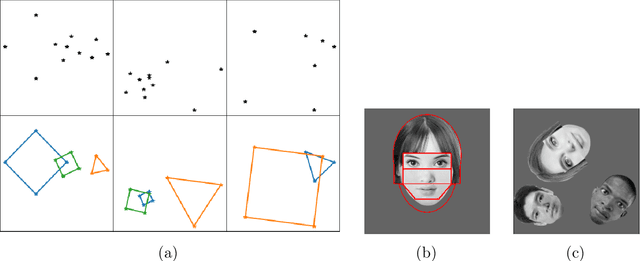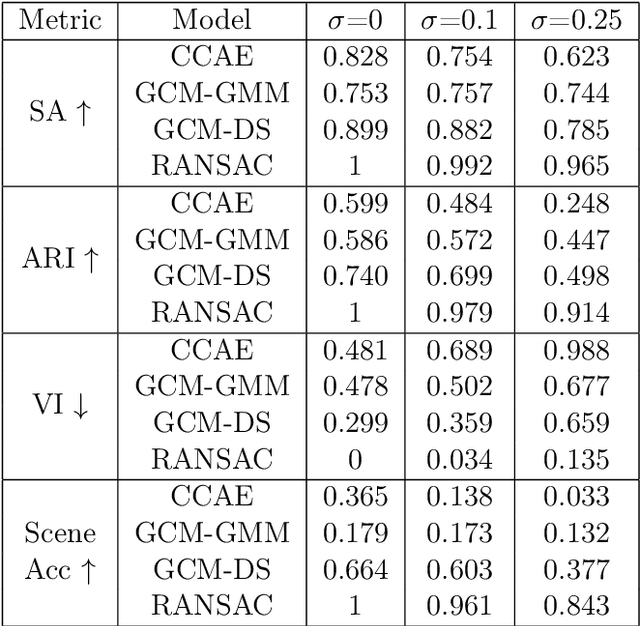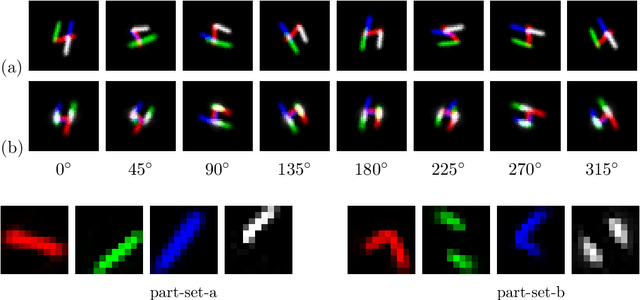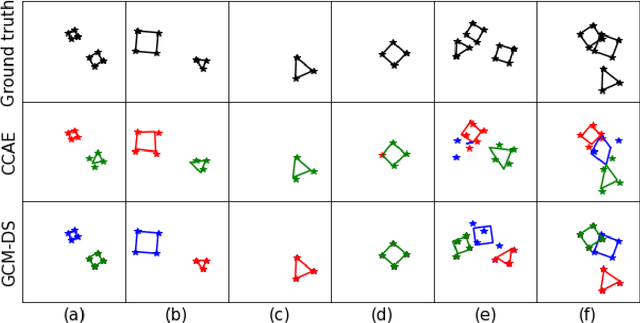Inference and Learning for Generative Capsule Models
Paper and Code
Sep 07, 2022



Capsule networks (see e.g. Hinton et al., 2018) aim to encode knowledge of and reason about the relationship between an object and its parts. In this paper we specify a generative model for such data, and derive a variational algorithm for inferring the transformation of each model object in a scene, and the assignments of observed parts to the objects. We derive a learning algorithm for the object models, based on variational expectation maximization (Jordan et al., 1999). We also study an alternative inference algorithm based on the RANSAC method of Fischler and Bolles (1981). We apply these inference methods to (i) data generated from multiple geometric objects like squares and triangles ("constellations"), and (ii) data from a parts-based model of faces. Recent work by Kosiorek et al. (2019) has used amortized inference via stacked capsule autoencoders (SCAEs) to tackle this problem -- our results show that we significantly outperform them where we can make comparisons (on the constellations data).
 Add to Chrome
Add to Chrome Add to Firefox
Add to Firefox Add to Edge
Add to Edge